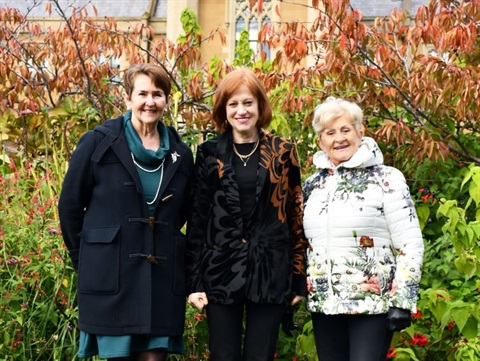The Albanese Government will reform and renew our foreign investment framework to make it work better for investors, our economy, and our national interest.
We are taking action to strengthen the regime where we need to, streamline it where we can, and make it more transparent.
This is all about boosting and bolstering our economic security and attracting the investment we need in our economy.
By providing more clarity around sensitive sectors and assets, our reforms will give businesses and investors greater certainty, while safeguarding our national security.
Foreign investment has a key role to play in our economy but only if it’s in our national interest.
We are ensuring our framework can evolve to respond to the changing global and economic environment we face.
National security threats are increasing due to intensifying geopolitical competition and risks to Australia’s national interests from foreign investment have evolved at the same time as competition for global capital is becoming more intense.
While we have a strong track record in attracting investment into Australia, we cannot be complacent.
Whether it’s our Future Made in Australia policy or our changes to foreign investment settings, our economic plan will help to attract the capital we need to modernise our economy and maximise our advantages in the interests of middle Australia.
Our reforms will make Australia a more attractive place to invest, boost economic prosperity and productivity, while strengthening our ability to protect the national interest in an increasingly complex economic and geostrategic environment.
This risk‑based approach to reviewing foreign investment proposals will make our foreign investment framework stronger, more streamlined and more transparent:
Stronger
- We are putting in place more robust, more efficient and more effective arrangements to scrutinise complicated or higher risk proposals.
- We are dedicating more resources to screening foreign investment in critical infrastructure, critical minerals, critical technology, those that involve sensitive data sets, and investment in close proximity to defence sites, to ensure that all risks are identified, understood and can be managed – balancing economic benefits and security risks.
- We will bolster our foreign investment compliance team to better monitor and enforce the conditions we put on these transactions – including by upping Treasury’s capacity to undertake on‑site visits. This team will also support the use of my call‑in power to review investments that come to pose a national security concern in time.
- We are making sure that foreign investors pay their fair share of tax. This includes releasing updated guidance about tax arrangements that will attract greater scrutiny – such as those that are overly complex.
- And we are working across Government to ensure our foreign investment settings can better deal with emerging risks and are aligned with other regulatory frameworks. This will include work to ensure the Security of Critical Infrastructure Act is robust and capable of responding to risks; enhancing energy network security; better managing and monitoring investments close to defence sites; and ensuring we have the right settings when it comes to our critical minerals strategy and critical technologies more broadly.
More streamlined
- We are streamlining our processing regime to provide faster approvals for known investors that are making investments in non‑sensitive sectors, and that have a good compliance record. This will reduce wait times and compliance costs.
- In assessing whether an application is low risk, Treasury will consider the investor, the target of their investment, and the structure of the transaction.
- For these applications, consultation timeframes will be shortened, making processing more timely.
- We are also reducing paperwork for repeat investors, where the ownership information hasn’t changed since their previous foreign investment application, and this is advised to Treasury early in the process.
- Treasury will adopt a new target of processing 50 per cent of cases within the initial statutory timeframe of 30 days from 1 January 2025.
- We’re also facilitating foreign investment by:
- Incentivising early applications and greater participation of foreign capital in our economy by providing a fee refund for foreign investment applications that were unsuccessful in a competitive bid process.
- Releasing draft regulations to exempt interfunding transactions from foreign investment approval processes, to make it easier for institutional investors to manage their portfolios.
- Allowing foreign investors to purchase established Build to Rent properties to build demand and incentivise construction of new projects.
- Removing unnecessary regulatory duplication in the assessment of competition issues through our merger reforms.
- Clarifying that PALM employers can buy established residential properties for their PALM employees to support our agricultural workforce.
More transparent
- To support these changes and to improve transparency, the government is today releasing an updated foreign investment policy document. It outlines our new risk‑based approach in more detail, including information on which sectors will attract more enhanced, effective and efficient screening, plus the new fast‑track process which investors will start to feel the effect of from July 1 2024.
- Treasury will also publish more detail and public guidance on our approach to foreign investment and tax integrity over the coming months.
Australia is an attractive destination for foreign investment, with investment flows into our country consistently outpacing the OECD average since 2006.
Direct and portfolio foreign investment in our economy grew to be worth about $3.5 trillion in 2023.
To make our economy even more prosperous and productive, to safeguard our national security and to make the most of the defining decade ahead, we need to get our investment settings right
These changes to streamline lower risk investment and provide greater transparency will also implement recommendation eight of the Government’s Southeast Asia Economic Strategy.
Our economic plan is all about addressing inflation and cost of living pressures, at the same time as we build a more productive, dynamic and resilient economy – and to do this we need to better attract and facilitate investment that is in Australia’s national interest.







